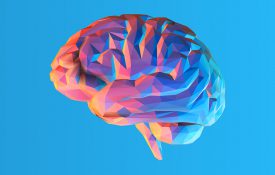-
Suicide rate up 33% in less than 20 years, yet funding lags behind other top killers
More than 47,000 Americans killed themselves in 2017, the Centers for Disease Control and Prevention reported Thursday, contributing to an overall decline in U.S. life expectancy. Since 1999, the suicide rate has climbed 33 percent. Americans are more than twice as likely to die by their own hands, of their own will, than by someone else's. But while homicides spark vigils and protests, entering into headlines, presidential speeches and police budgets, suicides don't. Still shrouded in stigma, many suicides go unacknowledged save for the celebrities – Robin Williams, Kate Spade, Anthony Bourdain – punctuating the unrelenting rise in suicide deaths with a brief public outcry.
-

Solving 21st-Century Problems Requires Skills That Few Are Trained In, Scientists Find
Tackling modern problems requires individuals who have the unique social and cognitive skills that allow for collaborative problem solving, say authors of a new report in Psychological Science in the Public Interest.
-

Bigger Brains Linked With Slightly Better Cognitive Performance
Using a larger dataset than all previous studies on the subject combined, researchers found a small connection between brain size and cognitive performance.
-
The Right Way for Parents to Question Their Teenagers
Any parent of a teenager knows that it can be a struggle to get them to open up. It’s natural for adolescents to pull away from their parents as they begin to build their own identities and test their burgeoning independence. But a growing body of research finds that maintaining open communication with adolescents is crucial to their mental health and well-being. Teens who disclose their daily activities and inner feelings to a parent tend to have lower levels of anxiety and depression and are less likely to engage in risky behaviors. How should parents handle these years?
-
Psychologists who studied shame around the world say it’s an essential part of being human
There’s a school of thought that says shame is a social construct: We only learn to feel inadequate and exposed because our particular culture sends us messages about what falls outside the realm of acceptability. But an international group of psychologists and anthropologists are putting forward an entirely different theory: Perhaps shame is universal—an evolved mechanism that helps us avoid behavior that would make our social group stop valuing us.
-
Psychological Study Explores How Bodies Shape First Impressions
When you first meet someone, it’s likely that you judge their personality based on what little information you have. While what we infer from faces has been well studied, new research from The University of Texas at Dallas suggests that people also form first impressions from body shapes. Ying “Nina” Hu, a doctoral student in the School of Behavioral and Brain Sciences, is the lead author of the study, recently published in Psychological Science, a journal of the Association for Psychological Science. Hu works in the Face Perception Research Lab of Dr. Alice O’Toole, professor of cognition and neuroscience and the Aage and Margareta Møller Professor.

